December 2009 Volume 25, Number 17
New York State Medicaid Update
The official newsletter of the New York Medicaid Program
David A. Paterson, Governor
State of New York
Richard F. Daines, M.D. Commissioner
New York State DOH
In this issue....
Medicaid Integrity Contractor Audits
Smoking Cessation Counseling Offered
Card Swipe Program Expanding
2010 Healthcare Common Procedure Coding System
Expanded Medicaid Reimbursement Nurse Practitioner Services
New York Medicaid to Cover Cardiac Rehabilitation for FFS Enrollees
2010 New York State Part D Medicare Prescription Drug Plans
Medicaid Pharmacy Prior Authorization Program Update
Medicaid Training Sessions Offered
Smoking Cessation Advertisement
Quick Reference Directory
TRANSPORTATION POLICY UNIT HAS NEW TELEPHONE #
The Medicaid Transportation Policy Unit can be reached at (518) 474-5187 or via email at: MedTrans@health.state.ny.us.

Notice to Pharmacies and Prescribers
The proposed January 1, 2010 implementation of the e-prescribing incentive program has been delayed pending approval by the Centers for Medicare and Medicaid Services (CMS). The Department of Health continues to work with CMS and will notify you as soon as approval is granted.
Important information about new eMedNY utilization review edits
Return to Table of Contents
New utilization review edits have been developed to support national practices, coding and billing standards, and Medicaid rules and policies. These edits also prevent reimbursement for duplicative and excessive services not covered by Medicaid.
GENERAL BILLING GUIDELINES
- Practitioner billing and prescribing should reflect correct coding, professional standards of practice, and New York State Medicaid rules.
- Dental billing should reflect professional standards of practice and New York State Medicaid rules.
- DME providers should avoid duplicate billing of supply and equipment procedure codes with the same therapeutic intent. Billing should be consistent with rules on bundling and unbundling components of a supply tray/kit, rentals and new equipment.
- Pharmacy providers should avoid duplicate billing of drug and supply codes with the same therapeutic intent. Billing should be consistent with rules on bundling and unbundling components of a supply tray/kit.
- Laboratory billing should reflect correct coding and be consistent with rules on bundling and unbundling specific tests and panels.
UTILIZATION REVIEW EDITS
- Edit 00715: The claim line conflicts with a previously paid service and is denied.
- Edit 00717: The claim line conflicts with a previously paid service and is pended for medical or administrative review.
- Edit 00718: The claim line conflicts with a previously paid service and payment is automatically or manually reduced per pricing rules.
For information on specific claims, please contact the eMedNY Call Center at (800) 343-9000. Please review your provider manual at: www.emedny.org/providermanuals/index.html.
MEDICAID INTEGRITY CONTRACTOR (MIC) AUDITS
Return to Table of Contents
Section 6034 of the Deficit Reduction Act of 2005 (P.L. 109-171), under section 1936 of the Social Security Act, established the Medicaid Integrity Program (MIP). Under the leadership of the Medicaid Integrity Group, within the Center for Medicaid and State Operations, the Centers for Medicare and Medicaid Services (CMS) continues to make significant progress in developing a strong, effective and sustainable program to combat Medicaid provider fraud, waste, and abuse.
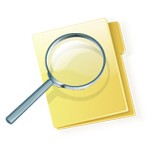
Section 1936 of the Social Security Act requires the Secretary of Health and Human Services to enter into contracts with eligible entities to perform the following four activities:
- the review of Medicaid provider actions to detect fraud or potential fraud;
- the auditing of Medicaid provider claims;
- the identification of overpayments; and
- the education of providers and others on payment integrity and quality of care issues.
In April 2008, CMS awarded the first Task Order for the review of provider services to Thomson Reuters. Under this Task Order, Thomson Reuters will be the Review MIC for a limited area. Later, the area was expanded to include CMS Region 2 which covers New Jersey, New York, Puerto Rico and the Virgin Islands. Beginning in summer 2008, Thomson Reuters began running algorithms and conducting other data-mining in order to help identify Medicaid providers with suspect billing patterns.
In August 2009, Island Peer Review Organization (IPRO) was awarded a MIP Task Order by CMS. Under this Task Order, IPRO will be the Audit MIC for CMS Region 2. This contract is for one year and may be renewed, on an annual basis for up to four additional years, upon successful performance determinations by CMS.
IPRO is a nationally recognized independent qualified improvement and evaluation organization, holding major contracts with state and federal governments, as well as private-sector clients. IPRO, a not-for-profit organization, based in Lake Success, has annual revenues of $50 million with 400 employees. IPRO holds ISO 9001:2000 Certification and is an Empire State Advantage Silver Award winner.
Medicaid providers should comply with the instructions set forth in the IPRO Audit Engagement letter and throughout the course of the audit. Following the completion of the audit, IPRO will develop a draft audit report that will be reviewed by CMS and the Office of the Medicaid Inspector General (OMIG). Medicaid providers will have the opportunity to provide written feedback and documentation regarding the draft report prior to it being finalized. Once CMS has approved the final audit report, it will be sent to the OMIG, who will be responsible for repaying the Federal share of any overpayment amount. The OMIG will then pursue collection of any overpayment in accordance with Federal and State laws, regulations and procedures.
Additional information is available at: http://www.cms.hhs.gov/MedicaidIntegrityProgram/.
All questions concerning your specific audit should be directed to IPRO at (800) 446-2447.
SMOKING CESSATION COUNSELING OFFERED
Return to Table of Contents

Effective January 1, 2010, Medicaid will cover smoking cessation counseling during a medical visit to pregnant and postpartum women and children and adolescents ages 10 to 21.
REIMBURSEMENT FOR THESE SERVICES WILL BE AVAILABLE TO:
- Office Based Practitioners (Physicians, Registered Nurse Practitioners [RNP], and Licensed Midwives [LM]); and
- Article 28 Hospital Outpatient Departments (OPD); and
- Upon approval of the Ambulatory Patient Groups payment method by the Centers for Medicare and Medicaid Services (CMS), Freestanding Diagnostic and Treatment Centers (D&TCs), and Federally Qualified Health Centers (FQHCs) that bill using APGs.
A Federally Qualified Health Center (FQHC) may bill for this service ONLY if it has elected to be reimbursed under APGs. Medicaid managed care and Family Health Plus plans are also responsible for covering smoking cessation counseling services to pregnant and postpartum women and to children and adolescents ages 10 to 21.
REIMBURSEMENT FOR SMOKING CESSATION COUNSELING (SCC) MUST MEET THE FOLLOWING CRITERIA:
- SCC is ONLY available to pregnant females, women up to six months postpartum; and children and adolescents ages 10 to 21, who smoke.
- SCC must be provided face-to-face by a physician, registered physician assistant, registered nurse practitioner, or licensed midwife during a medical visit. (No group sessions).
- SCC may be billed by a physician, an RNP, an LM, or Article 28 OPDs, D&TCs, or FQHCs that bill using APGs.
- Pregnant women will be allowed six (6) counseling sessions during their pregnancy.
- Postpartum women will be allowed six (6) counseling sessions during the 6 month postpartum period.
- Children and adolescents ages 10 to 21 will be allowed up to six (6) counseling sessions in a continuous 12-month period.
- Claims for SCC must include the appropriate SCC CPT procedure code. Only one procedure code per day may be billed. 99406 - Intermediate SCC 3 to 10 minutes; 99407 - Intensive SCC, greater than 10 minutes.
- Also, since SCC must be provided during a medical visit, the appropriate CPT Evaluation and Management (E&M) code, 99201 - 99205, 99211 - 99215; and/or the appropriate Preventive Medicine Code 99383 - 99386, 99393 - 99396 must be included. EXCEPTION - an E&M code is NOT necessary for practitioners billing for Global Obstetrical Care, which is billed at the end of pregnancy.
- Practitioners and clinics will use the appropriate ICD-9 diagnosis code:
- 305.1 - Tobacco use disorder. (Use for children and adolescents ages 10 up to 21).
- 649.03 - Tobacco use disorder complicating pregnancy, childbirth or the puerperium - antepartum. (Use for pregnant women who smoke).
- 649.04- Tobacco use disorder complicating pregnancy, childbirth or the puerperium - post-partum. (Use for postpartum women who smoke).
Smoking cessation counseling complements existing Medicaid covered benefits for prescription and non-prescription smoking cessation products. Any questions regarding the Smoking cessation counseling benefit may be directed to the Division of Financial Planning and Policy at (518) 473-2160.
CARD SWIPE PROGRAM EXPANDING TO INCLUDE SELECTED PRIVATE DUTY NURSES AND TRANSPORTATION PROVIDERS
Return to Table of Contents
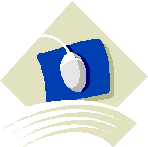
Effective February 2010, the Office of the Medicaid Inspector General (OMIG) will be expanding the Card Swipe Program to include private duty nurses and transportation carriers that supply ambulette services to Medicaid beneficiaries. If you are among the selected providers, you will receive a letter detailing the new requirements as well as how the program works.
In accordance with 18 NYCRR§ 514.5(e), providers who participate in the Card Swipe Program are required to use the VeriFone terminal in a significant number of their weekly Medicaid transactions. Minimum compliance with this requirement calls for providers to swipe 85 percent of all eligibility transactions by passing the client benefit identification card (CBIC) through the VeriFone terminal at the beginning and end of the service. OMIG will send a letter on a quarterly basis to inform providers of their swipe percentage.
The Department of Health regulations at 18 NYCRR 360-6.2(b)(4) state: "A recipient must present the Medicaid (MA) identification card or a department approved equivalent to the MA provider before receiving medical services or supplies." The program helps providers determine a Medicaid enrollee's current eligibility at the point of service.
Questions? Please contact the Point of Service Control Unit (OMIG) at (518) 402-1470 or the eMedNY Call Center at (800) 343-9000.
2010 HEALTHCARE COMMON PROCEDURE CODING SYSTEM
Return to Table of Contents
For billing dates of service on or after January 1, 2010, all health care providers and plans must utilize the 2010 Healthcare Common Procedure Coding System (HCPCS) as released by the federal Centers for Medicare and Medicaid Services (CMS). The coding changes (replacement codes) relating to Medicaid covered services are available on each affected provider manual homepage, provider communication link.
Please visit this site for more information: http://www.emedny.org/providermanuals/index.html.
Other available coding resources include:
- HCPCS Level I (CPT-4) procedure codes for practitioners and laboratories can be purchased in hard copy or electronic form through many publishing houses.
- HCPCS Level II (Alpha-Numeric) codes for other medical services are available electronically at:http://www.cms.hhs.gov/HCPCSReleaseCodeSets/ .
- ICD-9 Diagnosis and Procedure codes (effective 10/1/2009) are available electronically at: www.cms.hhs.gov/icd9providerdiagnosticcodes. They are also available through publishing houses.
HCPCS and ICD-9 codes are not Medicaid specific. Providers must use the current code set when billing any health care payer. New codes will be identified in the 2010 Fee Schedules and Procedure Codes Sections in early 2010.
Questions? Contact Provider Relations and Utilization Management at (800) 342-3005, Option 4.
EXPANDED MEDICAID REIMBURSEMENT FOR
NURSE PRACTITIONER SERVICES
Return to Table of Contents
Effective for dates of service on or after January 1, 2010, the following CPT procedure codes are reimbursable for ALL enrolled Nurse Practitioners when services are rendered in a non-facility setting:
| Procedure Code | Description of Service | Non-Facility Global Fee* |
|---|---|---|
| 11100 | BIOPSY OF SKIN, SUBCUTANEOUS TISSUE AND/OR MUCOUS MEMBRANE (INCLUDING SIMPLE CLOSURE), UNLESS OTHERWISE LISTED; SINGLE LESION | $47.19 |
| 11101 | BIOPSY OF SKIN, SUBCUTANEOUS TISSUE AND/OR MUCOUS MEMBRANE (INCLUDING SIMPLE CLOSURE), UNLESS OTHERWISE LISTED; EACH SEPARATE/ADDL LESION (USE 11101 IN CONJUNCTION W 11100) | $15.22 |
| 17000 | DESTRUCTION (EG, LASER SURGERY, ELECTROSURGERY, CRYOSURGERY, CHEMOSURGERY, SURGICAL CURETTEMENT), PREMALIGNANT LESIONS (EG, ACTINIC KERATOSES); FIRST LESION | $36.30 |
| 17003 | DESTRUCTION (EG, LASER SURGERY, ELECTROSURGERY, CRYOSURGERY, CHEMOSURGERY, SURGICAL CURETTEMENT), PREMALIGNANT LESIONS (EG, ACTINIC KERATOSES); SECOND THROUGH 14 LESIONS, EACH (USE 17003 IN CONJUNCTION WITH 17000) | $3.67 |
| 17004 | DESTRUCTION (EG, LASER SURGERY, ELECTROSURGERY, CRYOSURGERY, CHEMOSURGERY, SURGICAL CURETTEMENT), PREMALIGNANT LESIONS (EG, ACTINIC KERATOSES), 15 OR MORE LESIONS (DO NOT REPORT 17004 IN CONJUNCTION WITH17000-17003) | $83.20 |
| 17106 | DESTRUCTION OF CUTANEOUS VASCULAR PROLIFERATIVE LESIONS (EG, LASER TECHNIQUE); LESS THAN 10 SQ CM | $184.13 |
| 7107 | DESTRUCTION OF CUTANEOUS VASCULAR PROLIFERATIVE LESIONS (EG, LASER TECHNIQUE); 10 TO 50 SQ CM | $319.69 |
| 17108 | DESTRUCTION OF CUTANEOUS VASCULAR PROLIFERATIVE LESIONS (EG, LASER TECHNIQUE); OVER 50 SQ CM | $429.33 |
| 62367 | ELECTRONIC ANALYSIS OF PROGRAMMABLE, IMPLANTED PUMP FOR INTRATHECAL OR EPIDURAL DRUG INFUSION (INCLUDES EVALUATION OF RESERVOIR STATUS, ALARM STATUS, DRUG PRESCRIPTION STATUS); W/O REPROGRAMMING | $21.25 |
| 62368 | ELECTRONIC ANALYSIS OF PROGRAMMABLE, IMPLANTED PUMP FOR INTRATHECAL OR EPIDURAL DRUG INFUSION (INCLUDES EVALUATION OF RESERVOIR STATUS, ALARM STATUS, DRUG PRESCRIPTION STATUS); W REPROGRAMMING | $27.33 |
| 69200 | REMOVAL FOREIGN BODY FROM EXTERNAL AUDITORY CANAL; WITHOUT GENERAL ANESTHESIA | $62.02 |
| 92541 | SPONTANEOUS NYSTAGMUS TEST, INCLUDING GAZE AND FIXATION NYSTAGMUS, WITH RECORDING | $38.08 |
| 92542 | POSITIONAL NYSTAGMUS TEST, MINIMUM OF 4 POSITIONS, WITH RECORDING | $39.76 |
| 92543 | CALORIC VESTIBULAR TEST, EACH IRRIGATION (BINAURAL, BITHERMAL STIMULATION CONSTITUTES 4 TESTS), WITH RECORDING | $18.65 |
| 92544 | OPTOKINETIC NYSTAGMUS TEST, BIDIRECTIONAL, FOVEAL OR PERIPHERAL STIMULATION, WITH RECORDING | $31.74 |
| 92545 | OSCILLATING TRACKING TEST, WITH RECORDING | $29.17 |
| 92546 | SINUSOIDAL VERTICAL AXIS ROTATIONAL TESTING | $56.81 |
| 92552 | PURE TONE AUDIOMETRY (THRESHOLD); AIR ONLY | $11.65 |
| 92553 | PURE TONE AUDIOMETRY (THRESHOLD); AIR AND BONE | $16.00 |
| 92555 | SPEECH AUDIOMETRY THRESHOLD | $9.14 |
| 92556 | SPEECH AUDIOMETRY THRESHOLD; WITH SPEECH RECOGNITION | $12.75 |
| 92557 | COMPREHENSIVE AUDIOMETRY THRESHOLD EVALUATION AND SPEECH RECOGNITION (92553 AND 92556 COMBINED) | $28.21 |
| 92563 | TONE DECAY TEST | $10.39 |
| 92565 | STENGER TEST, PURE TONE | $7.67 |
| 92568 | ACOUSTIC REFLEX TESTING; THRESHOLD | $10.91 |
| 92569 | ACOUSTIC REFLEX TESTING; DECAY | $9.32 |
| 92571 | FILTERED SPEECH TEST | $21.25 |
| 92585 | AUDITORY EVOKED POTENTIALS FOR EVOKED RESPONSE AUDIOMETRY AND/OR TESTING OF THE CENTRAL NERVOUS SYSTEM; COMPREHENSIVE | $69.28 |
| 92587 | EVOKED OTOACOUSTIC EMISSIONS; LIMITED (SINGLE STIMULUS LEVEL, EITHER TRANSIENT OR DISTORTION PRODUCTS) | $31.99 |
| 95990 | REFILLING AND MAINTENANCE OF IMPLANTABLE PUMP OR RESERVOIR FOR DRUG DELIVERY, SPINAL (INTRATHECAL, EPIDURAL) OR BRAIN (INTRAVENTRICULAR); | $33.78 |
To be reimbursed for the following procedure codes, Nurse Practitioners must be certified by the NYS Education Department as a Nurse Practitioner in Psychiatry (Profession Code 040):
| Procedure Code | Description of Service | Non-Facility Global Fee* |
|---|---|---|
| 90801 | PSYCHIATRIC DIAGNOSTIC INTERVIEW EXAMINATION | $77.61 |
| 90804 | INDIVIDUAL PSYCHOTHERAPY, INSIGHT ORIENTED, BEHAVIOR MODIFYING AND/OR SUPPORTIVE, IN AN OFFICE OR OUTPATIENT FACILITY, APPROX 20-30 MINS FACE-TO-FACE WITH THE PATIENT | $32.53 |
| 90805 | INDIVIDUAL PSYCHOTHERAPY, INSIGHT ORIENTED, BEHAVIOR MODIFYING AND/OR SUPPORTIVE, IN AN OFFICE OR OUTPATIENT FACILITY, APPROX 20-30 MINS FACE-TO-FACE WITH THE PATIENT; WITH MEDICAL EVALUATION AND MANAGEMENT SVCS | $35.91 |
| 90806 | INDIVIDUAL PSYCHOTHERAPY, INSIGHT ORIENTED, BEHAVIOR MODIFYING AND/OR SUPPORTIVE, IN AN OFFICE OR OUTPATIENT FACILITY, APPROX 45-50 MINS FACE-TO-FACE WITH THE PATIENT | $45.90 |
| 90807 | INDIVIDUAL PSYCHOTHERAPY, INSIGHT ORIENTED, BEHAVIOR MODIFYING AND/OR SUPPORTIVE, IN AN OFFICE OR OUTPATIENT FACILITY, APPROX 45-50 MINS FACE-TO-FACE WITH THE PATIENT; WITH MEDICAL EVALUATION AND MANAGEMENT SVCS | $50.66 |
| 90862 | PHARMACOLOGIC MANAGEMENT, INCLUDING PRESCRIPTION, USE, AND REVIEW OF MEDICATION WITH NO MORE THAN MINIMAL MEDICAL PSYCHOTHERAPY | $27.60 |
| 90847 | FAMILY PSYCHOTHERAPY (CONJOINT PSYCHOTHERAPY) (WITH PATIENT PRESENT) | $55.68 |
| 90849 | MULTIPLE-FAMILY GROUP PSYCHOTHERAPY | $16.90 |
*Non-facility fees apply to the following place of service settings: Office (11), Client's Home (12), Assisted Living Facility (13), or Group Home (14).
These procedure codes will be included in the next Nurse Practitioner Provider Manual Update.
Questions? Please contact the Bureau of Policy Development and Coverage at (518) 473-2160.
ARTICLE 28 HOSPITAL OUTPATIENT DEPARTMENTS, ARTICLE 28 FREESTANDING CLINICS (DTCs) & PHYSICIANS
NEW YORK MEDICAID TO COVER CARDIAC
REHABILITATION FOR FEE-FOR-SERVICE ENROLLEES
Return to Table of Contents
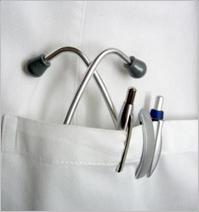
Effective January 1, 2010, New York Medicaid will cover cardiac rehabilitation for fee-for-service enrollees when ordered by a physician and if medically necessary. Cardiac rehabilitation programs must be comprehensive and include a medical evaluation, a program to modify cardiac risk factors (e.g., nutritional counseling), prescribed exercise, education, and counseling.
The American Heart Association/American Association of Cardiovascular and Pulmonary Rehabilitation (AHA/AACVPR) defines cardiac rehabilitation (CR) as coordinated, multifaceted interventions designed to optimize a cardiac patient's physical, psychological, and social functioning, in addition to stabilizing, slowing, or even reversing the progression of the underlying atherosclerotic processes, thereby reducing morbidity and mortality
Who may provide cardiac rehabilitation therapy?
- To be reimbursed by Medicaid, cardiac rehabilitation therapy must be provided:
- in an Article 28 hospital outpatient department; or
- in a physician's office; or
- Upon approval of the Ambulatory Patient Groups payment method by the Centers for Medicare and Medicaid Services (CMS), Freestanding Diagnostic and Treatment Centers (D&TCs), and Federally Qualified Health Centers (FQHCs) that bill using APGs.
The following practitioners may administer cardiac rehabilitation in a clinic setting: Physicians, Physician Assistants, Nurse Practitioners, Physical Therapists, Physical Therapy Assistants, and Registered Nurses. Medicaid coverage of cardiac rehabilitation is consistent with Medicare's coverage guidelines. Coverage is subject to the following conditions:
- The facility meets the definition of a hospital outpatient department or a freestanding D&TC, i.e., a physician is on the premises and available to perform medical duties at all times while the facility is open, and each patient is under the care of a hospital or clinic physician;
- The facility has immediately available all cardiopulmonary emergency diagnostic and therapeutic life saving equipment accepted by the medical community as medically necessary, e.g., oxygen, cardiopulmonary resuscitation equipment, or defibrillator;
- While in session, the program is conducted in an area set aside for its exclusive use; and
- The facility is staffed by necessary personnel to conduct the program safely and effectively, who are trained in both basic and advanced life support techniques and in exercise therapy for coronary disease. Services of nonphysician personnel must be furnished under the direct supervision of a physician. Direct supervision means that a physician must be in the exercise program area and immediately available and accessible for an emergency at all times while the exercise program is being conducted. It does not require that a physician be physically present in the exercise room. However, the physician must be in close proximity considered immediately available and accessible.
Who can receive cardiac rehabilitation?
To be eligible for covered cardiac rehabilitation services, Medicaid beneficiaries must have a qualifying cardiac event with an ICD-9 diagnosis supporting medical necessity as follows:
- acute myocardial infarction within the preceding 12 months (all ICD-9 codes beginning with 410 or 412 or V58.73); or
- stable angina pectoris (all ICD-9 codes beginning with 413 or V58.73); or
- heart or heart-lung transplant (ICD-9 V42.1); or
- heart valve repair/replacement (ICD-9 V42.2, V43.3); or
- previous coronary artery bypass (CABG) surgery (ICD-9 V45.81); or
- percutaneous transluminal coronary angioplasty - PTCA - or coronary stenting (ICD-9 V45.82). NOTE: Congestive heart failure in the absence of other covered conditions is NOT included as a covered condition for cardiac rehabilitation.
Duration of the Program
The frequency and duration of the program generally consists of 36 sessions, occurring 2-3 times per week for 12-18 weeks. No prior authorization is necessary for this phase. Prior authorization will be required for cardiac rehabilitation beyond the initial 36 sessions for patients who do not meet the exit criteria. Prior authorization must be obtained by a physician or nurse practitioner. The additional 36 sessions (2-3 times per week for 12- 18 weeks) may be granted when:
- the patient's qualifying diagnosis was not V42.2 or V43.3 (valvuloplasty or valve replacement); and
- the patient is benefiting from cardiac rehabilitation; and
- the patient has failed to meet the exit criteria after completion of the first 36 visits
Information regarding this prior authorization process will be provided to practitioners in a future Medicaid Update.
Exit Criteria:
| Qualifying Condition | Exit Criteria |
|---|---|
| Ischemic Heart Disease | Exercise tolerance = 7 METS* |
| Post MI Post CABG Post PTCA or Stent Angina Pectoris |
Six minutes of exercise during a treadmill or stress imaging test without significant ischemia or dysrythmia |
| Post heart or heart-lung transplant | Peak oxygen consumption (VO2) of greater than 90% of predicted |
*Metabolic Equivalent Task units. METS measure the energy (oxygen) used by the body during activity. A stable level of exercise tolerance is 7 METS.
NOTE: Patients with valvuloplasty or valve replacement are eligible for the initial 36 visits ONLY.
What constitutes a routine cardiac rehabilitation therapy visit?
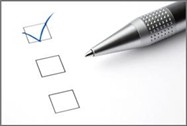
A visit including one or more of the following services is considered one routine cardiac rehabilitation visit. The same rate of reimbursement will be allowed for each visit. A visit does not require that all of the services be performed. In order for the visit to be reimbursable, at least one of these services must be performed:
- continuous ECG telemetric monitoring during exercise;
- ECG rhythm strip with interpretation and physician's revision of exercise prescription; and
- limited examination for physician follow-up to adjust medication or other treatment changes.
Each session must last a minimum of 60 minutes. One session per day is reimbursable. Two or three sessions are allowed per week. Sessions at a frequency of less than two per week will be considered not medically necessary.
OTHER COVERED SERVICES INCLUDE:
- New patient comprehensive evaluation, including history, physical, and preparation of initial exercise prescription. One is allowed at the beginning of the program if not already performed by the patient's attending physician.
- ECG stress test (treadmill or bicycle ergometer) with physician monitoring and report. Allow one at the beginning of the program and one after 3 months (usually upon completion of the program).
- Other physician services, as needed.
Reimbursement:
In a clinic setting, cardiac rehabilitation is billed under Ambulatory Patient Groups (APGs) with one of the following rate codes as appropriate: 1400, 1407, 1413, 1422, 1425, 1432, 1435 or 1441.
The CPT codes for cardiac rehabilitation include:
- 93797, Physician services for outpatient cardiac rehabilitation, without continuous ECG monitoring (per session); and
- 93798, Physician services for outpatient cardiac rehabilitation, with continuous ECG monitoring (per session).
Either of these codes will group to APG 94, Cardiac Rehabilitation (a significant procedure APG). These APG rate codes are applicable for cardiac rehabilitation payment. When cardiac rehabilitation is provided in a physician's office, the physician can bill using these CPT codes. Payment for these procedure codes can be found in the Physician Medicine Fee Schedule at www.emedNY.org
What about Utilization Thresholds?
Patients who participate in cardiac rehabilitation programs may require medically necessary services beyond the normal service limits. These service limits are established and based on each beneficiary's clinical information, including diagnoses, procedures, prescription drugs, age and gender. As a result, most Medicaid beneficiaries will have service limits increased to clinically appropriate levels and will not need additional services authorized. However, when indicated, the physician may request approval of higher limits by submitting a Threshold Override Application (TOA).
Resources:
Please contact Computer Sciences Corporation (CSC) for assistance in obtaining SAs, submitting TOAs, or other UT related questions at (800) 343-9000.
To obtain SAs, please review the Medicaid Eligibility Verification System Manual at: www.emedny.org/providermanuals/index.html.
Questions? Please contact the Bureau of Policy Development and Coverage at (518) 473-2160.
Attention: Providers Who Have Patients with Medicare Part D
2010 New York State Part D Medicare Prescription Drug Plans
For People with both Medicare and NYS Medicaid
Return to Table of Contents
The following is a list of the 2010 Medicare Prescription Drug Plans available at no cost to individuals with both Medicare and New York Medicaid. Other plans offered by these companies may require an additional monthly premium payment. Contact information was updated in October 2009.
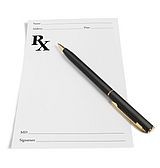
- Bravo Health
Bravo Rx
Customer Service 1-800-723-9209
Current Members 1-800-723-9209
www.mybravohealth.com - CIGNA Medicare Rx
Cigna Medicare Rx Plan One
Customer Service 1-800-735-1459
Current Members 1-800-222-6700
www.cignamedicarerx.com - EnvisionRx Plus
EnvisionRx Plus Silver
Customer Service 1-866-250-2005
Current Members 1-866-250-2005
www.envisionrxplus.com - Fox Insurance Company
Fox Value Plan
Customer Service 1-888-369-7979
Current Members 1-888-369-7979
www.foxrxcare.com - GHI Medicare Prescription Drug Plan
GHI Medicare Prescription Drug Plan
Customer Service 1-800-325-9792
Current Members 1-877-444-7241
www.ghi.com - HIP Insurance Company of New York
HIP Part D New York
Customer Service 1-800-447-9169
Current Members 1-800-447-8255
www.HIPusa.com - Medco Medicare Prescription Plan
Medco Medicare Prescription Plan - Value
Customer Service 1-800-758-3605
Current Members 1-800-758-3605
www.medcomedicare.com - RxAmerica
Advantage Star Plan by RxAmerica
Customer Service 1-800-429-6686
Current Members 1-800-429-6686
www.Meds4Medicare.com - SilverScript Insurance Company
Silver Script Value
Customer Service 1-866-552-6106
Current Members 1-866-235-5660
www.silverscript.com - Universal American
Prescriba Rx Bronze
Customer Service 1-800-818-0007
Current Members 1-800-818-0007
www.universalamerican.com - Wellcare
Wellcare Classic
Customer Service 1-888-293-5151
Current Members 1-888-550-5252
www.wellcarepdp.com
MEDICAID PHARMACY PRIOR AUTHORIZATION PROGRAMS UPDATE
Return to Table of Contents

The New York State Medicaid Pharmacy and Therapeutics (P&T) Committee recently recommended changes to the Medicaid Pharmacy Prior Authorization Programs. The Commissioner of Health has accepted these recommendations and has approved changes to the Preferred Drug Program (PDP) and Clinical Drug Review Program (CDRP).
Effective January 12, 2010, prior authorization requirements will change for some drugs in the following five PDP drug classes:
- Beta-2 Adrenergic Agents - Inhaled Short Acting
- Anti-Virals - Oral
- Anti-Fungals
- Narcotics - Long Acting
- Thiazolidinediones (TZDs)
The PDP is also expanding to include two additional drug classes which will become effective on January 12, 2010. Prescriptions for non-preferred drugs in the following drug classes will require prior authorization:
- Alzheimer's Agents
- Sulfasalazine Derivatives
In addition to these changes, the New York State Medicaid CDRP is expanding to require prior authorization for the following:
- Adcirca® effective January 12, 2010;
- Xyrem® effective March 2010;
- Growth hormones (Genotropin®, Nutropin®, Nutropin AQ®, Saizen®, Humatrope®, Norditropin®, Omnitrope®, Tev-Tropin®, and Zorbtive®) for enrollees 21 years of age or older effective March 2010.
To obtain prior authorization for non-preferred drugs within the drug classes listed above or any of the drugs added to the CDRP, please contact the Clinical Call Center at (877) 309-9493 and follow the appropriate prompts.
The current Preferred Drug List (PDL), with a full listing of preferred and non-preferred drugs for each of the drug classes currently subject to the PDP is available on-line at: https://newyork.fhsc.com/downloads/providers/NYRx_PDP_PDL.pdf.
Additional information, such as a "Quick List" of only preferred drugs and updated prior authorization forms, is available at each of the following Websites:
Remember, unless otherwise indicated on the PDL or Quick List, prescribing preferred drugs requires no further action on your part. For clinical concerns or preferred drug program questions, contact (877) 309-9493. For billing questions, contact (800) 343-9000. For Medicaid pharmacy policy questions, call (518) 486-3209.
MEDICARE AUTOMATED CLAIM CROSSOVER UPDATE
Return to Table of Contents

Effective December 2009 New York State Medicaid implemented an automated Medicare crossover process so providers will no longer have to bill New York Medicaid separately for the Medicare deductible, coinsurance or copay amounts for Medicare beneficiaries covered by Medicare Parts A & B. These types of claims are now sent directly by Medicare to New York Medicaid for processing and payment.
IMPORTANT FACTS PROVIDERS MUST KNOW ABOUT THE MEDICARE/MEDICAID CROSSOVER PROCESS
Medicare remittances will alert providers that the claim has been crossed over to New York Medicaid with a Remittance Remark Code of MA18. The electronic Medicare remittance indicator will be in Loop 2100, NM 1 Segment; NM 101 = TT and NM 103 will contain the name of the entity the claim is crossed over to.
There will be no changes to the Medicaid remittance statements (paper or electronic).
Crossover claims will be reported to providers on a paper remittance statement from Medicaid unless the provider has selected a Default ETIN with eMedNY. If a Default ETIN has been selected, the crossover claims will be reported on the electronic remittance for the Default ETIN. Providers may only select one Default ETIN for each provider ID (NPI) and a provider must be receiving electronic remittance from Medicaid to select a Default ETIN. There is a Default ETIN Selection form available at www.emedny.org.
Providers are strongly encouraged to verify Medicaid eligibility and those providers who are required to obtain Service Authorizations from Medicaid still need to do so.
If a provider bills Medicare with an NPI that is not enrolled with New York Medicaid any crossover claim will be rejected by New York Medicaid and Medicare will send a notification of the rejection to the provider. A rejected claim will not appear on a provider's Medicaid remittance statement. To enroll an NPI with New York Medicaid providers should contact the Medicaid enrollment unit at (800) 342-3005.
Crossover claims appearing on the New York Medicaid remittance statement cannot be voided by the provider by submitting a voided claim transaction to New York Medicaid. Rather, the void needs to be sent to Medicare and Medicare will submit the void to New York Medicaid.
Crossover claims can be adjusted/replaced by the provider by submitting the adjusted claim directly to New York Medicaid following the usual Medicaid adjustment process or by submitting the adjusted claim to Medicare. Medicare will then cross over the adjustment to New York Medicaid.
Additional information is available at: http://www.emedny.org/Medicare_Crossover/Medicare_Crossover.html.
Questions? Please contact the eMedNY Call Center at (800) 343-9000.
Medicaid Seminars Offered
Return to Table of Contents
- Do you have billing questions?
- Are you new to Medicaid billing?
- Would you like to learn more about ePACES?
If you answered YES to any of these questions, please consider registering for a Medicaid seminar. Computer Sciences Corporation (CSC) offers various types of seminars to providers and their billing staff. Many of the seminars planned for the upcoming months offer detailed information and instruction about Medicaid's Web-based billing and transaction program - ePACES.
ePACES is the electronic Provider Assisted Claim Entry System which allows enrolled providers to submit the following type of transactions:
- Claims
- Eligibility Verifications
- Utilization Threshold Service Authorizations
- Claim Status Requests
- Prior Approval Requests
Physicians, nurse practitioners and private duty nurses can even submit claims in "REAL-TIME" via ePACES. With "real-time" the claim is processed within seconds and providers can get the status of a claim, including the paid amount without waiting for remittance advice.
Fast and easy seminar registration, locations, and dates are available on the eMedNY Website at: http://www.emedny.org/training/index.aspx.
Please review the seminar descriptions carefully to identify the seminar appropriate for your training requirements. Registration confirmation will instantly be sent to your e-mail address.
If you are unable to access the Internet to register, we will fax you a list of seminars and registration information to you through CSC's Fax on Demand at (800) 370-5809. Please request document 1000 for January - March seminar dates, 1001 for April - June seminar dates, 1002 for July - September seminar dates and 1003 for October - December seminar dates.
Note: Seminar schedule information is posted quarterly in CSC's Fax on Demand and Website at the beginning of each quarter. Please continue to check for updated information.
Questions about registration? Please contact the eMedNY Call Center at (800) 343-9000.
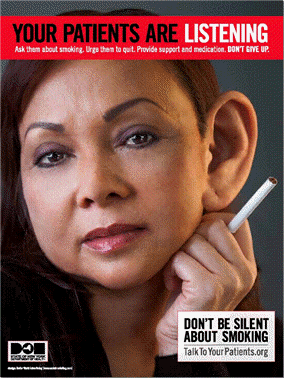
By providing counseling, pharmacotherapy, and referrals, you can double your patients' chances of successfully quitting. For more information, please visit www.talktoyourpatients.org or call the NY State Smokers' Quitline at 1-866-NY-QUITS (1-866-697-8487).
Do you suspect that a Medicaid provider or an enrollee has engaged in fraudulent activities?
Return to Table of Contents
Please Call: 1-877-87FRAUD or (212 417-4570)
Your call will remain confidential.
You can also complete a Complaint Form online at:
www.omig.state.ny.us
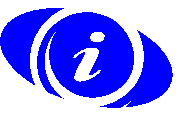
Quick Reference Guide
Return to Table of Contents
Office of the Medicaid Inspector General:
http://www.omig.state.ny.us or call (518) 473-3782 with general
inquiries or 1-877-87FRAUD with suspected fraud complaints or allegations.
This contact information can also be used for Provider Self-Disclosures.
Questions about billing and performing MEVS transactions?
Please contact eMedNY Call Center at: (800) 343-9000.
Provider Training
To sign up for a provider seminar in your area, please enroll online at:
http://www.emedny.org/training/index.aspx
For individual training requests, call (800) 343-9000 or email: emednyproviderrelations@csc.com
Enrollee Eligibility
Call the Touchtone Telephone Verification System at any of the numbers below:
(800) 997-1111 (800) 225-3040 (800) 394-1234.
Address Change?
Questions should be directed to the eMedNY Call Center at: (800) 343-9000.
Fee-for-Service Providers
A change of address form is available at:
http://www.emedny.org/info/ProviderEnrollment/index.html
Rate-Based/Institutional Providers
A change of address form is available at:
http://www.emedny.org/info/ProviderEnrollment/index.html
Does your enrollment file need to be updated because you've experienced a change in ownership?
Fee-for-Service Providers please call (518) 402-7032
Rate-Based/Institutional Providers please call (518) 474-3575
Comments and Suggestions Regarding This Publication?
Please contact the editor, Kelli Kudlack, at:
medicaidupdate@health.state.ny.us
Medicaid Update is a monthly publication of the New York State Department of Health containing information regarding the care of those enrolled in the Medicaid Program.